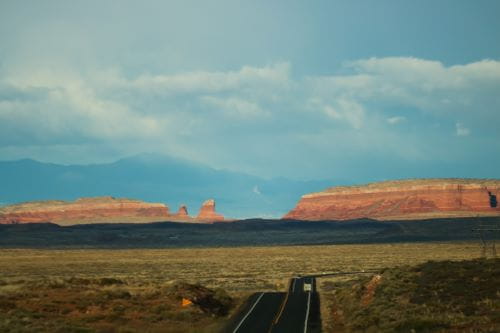Maria Montessori spoke at length about the importance of a child’s connection to nature and our responsibility as humankind to become citizens of the world. She believed so much in the value of a child’s connection with the natural world that she even referred to adolescents as “land-children,” who, when given the appropriate access to the Earth and its resources, could harness the power of important scientific, historic, and social knowledge (Montessori, p. 68). There is no better representation of this symbiotic partnership with the Earth and its resources than that which lies with Indigenous peoples.
According to Amnesty International, “Indigenous peoples have a special relationship with the land on which they have lived for generations, sometimes for tens of thousands of years. They possess crucial knowledge about how to manage natural resources sustainably and act as guardians or custodians of the land for the next generation.” They are caretakers of the environment, working diligently to protect their lands, respecting wildlife and botanical species while passing down vital knowledge from one generation to the next. Despite this understanding of the special relationship Indigenous peoples have with the land, they have been forced to suffer many social injustices. They have endured violent land removal and the erasure of their culture and language, yet they continue to work to selflessly protect their lands. This type of global stewardship is that which Montessori dreamed of for children and for the future.
Red Mesa Unified School District (USD) #27 is proud to be the first public school district to develop a Montessori program in the Navajo Nation. Robert Charley Early Education opened in 2014 as a comprehensive program employing the Montessori Method for students ages three to six. Their curriculum aligns with Dine’ (a term the Navajo people use to refer to themselves and their culture) and state standards and has received a four-star rating, an honor they share with only one other program on the Navajo Nation.
As part of the rich culturally immersive experience Robert Charley Early Education offers, Indigenous peoples are proudly celebrated not just on National Indigenous Peoples Day, but every day of the year. The incorporation of the Dine’ culture occurs very naturally in the curriculum and is woven throughout the classroom as nearly all classroom guides are Indigenous. In addition to traditional Montessori materials such as the dressing frame, Robert Charley Early Education introduces culturally-relevant works including the cradleboard (a traditional protective baby-carrier used by many Indigenous cultures in North America) and weaving to allow students to practice Practical Life skills. The classroom is also filled with Indigenous books, pictures, and artifacts. Since teacher education programs (TEPs) have been inaccessible to Robert Charley Early Education staff for various reasons, they are working towards developing their own training program itinerantly to ensure the Dine’ culture remains central to their program.
Just as order is an inherent part of the Montessori Method, it holds immense value in the Navajo culture. In an effort to introduce this concept in the classroom, students engage in a daily practice within which they acknowledge the four cardinal directions in their native language, in English, and silently. Culturally, this practice upholds a belief that the sense of outer order that is developed (and the inner order that it creates) serves as a way for one to ground themselves.
The children engage in another daily cultural practice which includes walking around the ellipse as if they were in a Hogan (a traditional dwelling and ceremonial structure of the Navajo peoples). There is a physical, mental, and spiritual reasoning for this custom. Traditionally, this is the way energy flows, so students move from left to right to align themselves with that movement just as the sun rises and sets on the Earth. This aligns with the Montessori practice of setting up shelves and presenting lessons from left to right as a preparation for reading. As Sara Stilson, Robert Charley Early Education program director and guide, notes, “[This daily custom of walking the ellipse] trains the mind and body to be mindful and move to the order of the universe.”
In regards to cultural, religious, and holiday observances, Robert Charley Early Education proudly celebrates their heritage with students. For Native American Heritage Month, students participate in daily native activities and celebrations where they enjoy traditional foods and wear traditional clothing and accessories including moccasins and hair buns. For Thanksgiving, the school emphasizes the importance of giving thanks and being grateful for what one has as students share traditional meals. Cultural trauma is not discussed regarding this holiday as students and educators are living this truth. Teachers speak the native language to the children and share cultural stories that have been passed down for generations. Robert Charley Early Education does not celebrate Columbus Day. According to Stilson, “Navajo people (or Dine’) generally don’t speak about cultural trauma nor would they speak negatively about an event. My guess is that Columbus began a very difficult phase in their history. [Instead,] they would prefer to celebrate the culture that has sustained them.”
Robert Charley Early Education continues to make strides to ensure Montessori principles and Indigenous values are woven naturally into their curriculum, recognizing that there are still opportunities for growth. One of their goals is to prepare the environment in a way that aligns with the Dine’ cardinal colors: Practical Life would be to the east and would incorporate the color white, Sensorial to the south implementing the color yellow, Language to the west featuring the color turquoise, and Math to the north utilizing the color black. Stilson expresses, “The reason that I want this is because it reinforces the culture and the higher order thinking systems of both Indigenous [peoples] and Montessori.” Sara and her colleagues at Robert Charley Early Education are passionate about revolutionizing Indigenous education. She emphasizes that the work they are doing “are not [just] activities, but a way of life, much as Montessori is.”
The opinions expressed in Montessori Life are those of the authors and do not necessarily represent the position of AMS.


